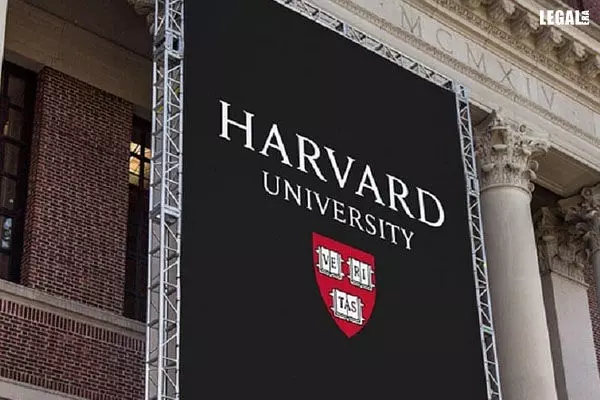- Home
- News
- Articles+
- Aerospace
- Artificial Intelligence
- Agriculture
- Alternate Dispute Resolution
- Arbitration & Mediation
- Banking and Finance
- Bankruptcy
- Book Review
- Bribery & Corruption
- Commercial Litigation
- Competition Law
- Conference Reports
- Consumer Products
- Contract
- Corporate Governance
- Corporate Law
- Covid-19
- Cryptocurrency
- Cybersecurity
- Data Protection
- Defence
- Digital Economy
- E-commerce
- Employment Law
- Energy and Natural Resources
- Entertainment and Sports Law
- Environmental Law
- Environmental, Social, and Governance
- Foreign Direct Investment
- Food and Beverage
- Gaming
- Health Care
- IBC Diaries
- In Focus
- Inclusion & Diversity
- Insurance Law
- Intellectual Property
- International Law
- IP & Tech Era
- Know the Law
- Labour Laws
- Law & Policy and Regulation
- Litigation
- Litigation Funding
- Manufacturing
- Mergers & Acquisitions
- NFTs
- Privacy
- Private Equity
- Project Finance
- Real Estate
- Risk and Compliance
- Student Corner
- Take On Board
- Tax
- Technology Media and Telecom
- Tributes
- Viewpoint
- Zoom In
- Law Firms
- In-House
- Rankings
- E-Magazine
- Legal Era TV
- Events
- Middle East
- Africa
- News
- Articles
- Aerospace
- Artificial Intelligence
- Agriculture
- Alternate Dispute Resolution
- Arbitration & Mediation
- Banking and Finance
- Bankruptcy
- Book Review
- Bribery & Corruption
- Commercial Litigation
- Competition Law
- Conference Reports
- Consumer Products
- Contract
- Corporate Governance
- Corporate Law
- Covid-19
- Cryptocurrency
- Cybersecurity
- Data Protection
- Defence
- Digital Economy
- E-commerce
- Employment Law
- Energy and Natural Resources
- Entertainment and Sports Law
- Environmental Law
- Environmental, Social, and Governance
- Foreign Direct Investment
- Food and Beverage
- Gaming
- Health Care
- IBC Diaries
- In Focus
- Inclusion & Diversity
- Insurance Law
- Intellectual Property
- International Law
- IP & Tech Era
- Know the Law
- Labour Laws
- Law & Policy and Regulation
- Litigation
- Litigation Funding
- Manufacturing
- Mergers & Acquisitions
- NFTs
- Privacy
- Private Equity
- Project Finance
- Real Estate
- Risk and Compliance
- Student Corner
- Take On Board
- Tax
- Technology Media and Telecom
- Tributes
- Viewpoint
- Zoom In
- Law Firms
- In-House
- Rankings
- E-Magazine
- Legal Era TV
- Events
- Middle East
- Africa
Harvard University Sues Trump Administration In US District Court Over $2.2 Billion Funding Freeze

Harvard University Sues Trump Administration In US District Court Over $2.2 Billion Funding Freeze
Cites the Civil Rights Act and the Administrative Procedure Act to highlight the government’s improper demands
Harvard University has filed a lawsuit in the US District Court in Massachusetts against the US Department of Health and Human Services (HHS) and other federal agencies.
Challenging President Donald Trump administration’s decision to suspend $2.2 billion in federal funding, it alleged that the embargo violated Harvard’s First Amendment rights and federal statutes, including Title VI of the Civil Rights Act of 1964.
The University held that the federal government overstepped its authority by attempting to dictate internal university operations, including governance structure, hiring practices and academic content.
The complaint read, "The government's demands on Harvard cut at the core of its constitutionally protected academic freedom because they seek to assert governmental control over Harvard's research, academic programs, community and governance.”
It mentioned how the administration demanded that the University restructure its governance and achieve specific ‘viewpoint diversity’ quotas in every department, discontinue diversity and inclusion programs, and terminate recognition of certain student organizations. The demands represented unlawful government interference in private educational decisions.
In its letter to the government, the University added, "Neither Harvard nor any other private university can allow itself to be taken over by the federal government.”
The lawsuit stressed that the hold on funding threatened critical medical and scientific research, including treatments for Parkinson’s and Alzheimer’s diseases, cancer diagnostics, infectious disease prevention and military technology developments. It was against public interest.
The University contended, "Since its founding nearly four centuries ago, Harvard’s students, faculty and researchers have helped identify and solve some of society’s most pressing problems. Those pathbreaking and life-saving advancements are due in part to the longstanding collaboration between universities such as Harvard and the federal government, dating back to the Second World War. Millions of Americans are healthier and safer as a result.”
It added, “Federal funding has enabled researchers at Harvard to develop novel drugs to fight Parkinson’s and Alzheimer’s diseases, engineer nanofibers to protect service members and first responders, support American astronauts in space, and design an artificial intelligence (AI) system that can be used to diagnose and treat cancer."
Harvard submitted that federal agencies violated the Civil Rights Act and the Administrative Procedure Act by failing to follow legally required procedures. The government should have sent a notice and provided the opportunity for voluntary compliance, formal hearings and congressional notification before taking such stern steps.
The lawsuit said, "Under whatever name, the government has ceased the flow of funds to Harvard as part of its pressure campaign to force the University to submit to the government's control over academic programs.”
It outlined the steps that the University implemented to address antisemitism on campus, including adopting the International Holocaust Remembrance Alliance's definition, suspending policy-violating student organizations and forming a Presidential Task Force on combating antisemitism.
The actions were presented as evidence that the university was addressing concerns without surrendering its independence.
The lawsuit proposed specific remedies from the court, including declarations that the funding freeze was unlawful, orders to vacate and set aside the government's actions, and permanent injunctions preventing agencies from implementing or maintaining the freeze.
Moreover, Harvard requested the court to expedite proceedings to minimize harm to ongoing research programs.



